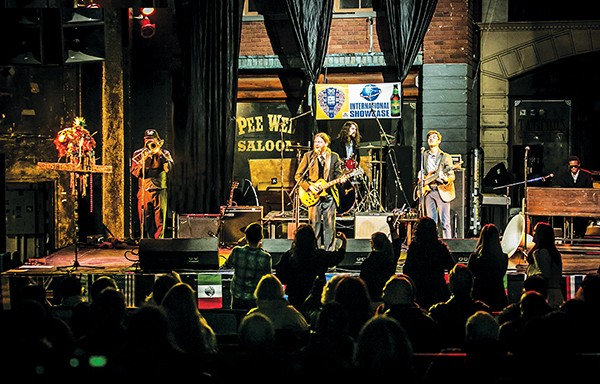“We’re back!” There ought to be a banner with those words draped over the Hernando DeSoto Bridge this weekend, marking the grand return of the Beale Street Music Festival. After being shuttered for the last two years, making it three years since the last edition, the perennial gathering of music lovers is roaring back to life with more momentum than ever.
The typical BSMF experience always runs the spectrum from your favorite blockbuster artist to that new unheard-of band that blows your mind. And as for the former, concert-goers need little additional information on why Megan Thee Stallion, Weezer, or Van Morrison are phenomenal. But for the typical out-of-town fan, too many artists based in Memphis fall in the latter category. Naturally, given that Memphis still rules the airwaves and charts as in days of yore, plenty of our local artists need no introduction, either. But chances are good that everyone will discover something new about the Bluff City after this weekend.
Randy Blevins, vice president of marketing and programming at the Memphis in May International Festival, thinks this makes BSMF especially valuable to the city. “People talk about going to other places and exploring to learn about new music,” he says. “Most of our ticket-holders come from over 200 miles away. They’re coming from all 50 states and five or six different countries. So most of the people there are not Memphians. There are a lot of people coming here from out of town; exposing them to these Memphis acts that Memphians know and love is part and parcel of helping promote Memphis. You might show up because you bought tickets to see Counting Crows, and out of nowhere you learn about Don Bryant. The average person may or may not know about him. That’s Memphis pumping through the blood. We’re helping to spread the word.”
Sure, we all love songs by Smashing Pumpkins or DaBaby or Sarah McLachlan. Of course the Indigo Girls and Shaggy and Lindsey Buckingham are phenomenal. Toad the Wet Sprocket, Soccer Mommy, and Robert Randolph are worth a special trip. But given that it’s such a point of pride for the festival, and in light of the fact that this year’s BSMF boasts the most local acts ever — “at least over the past two decades for sure,” Blevins says — today we celebrate the native talent that makes Memphis ground zero for so much musical innovation and style. Here, by the day of their appearance, are the hometown heroes that make this music festival a little different from most.
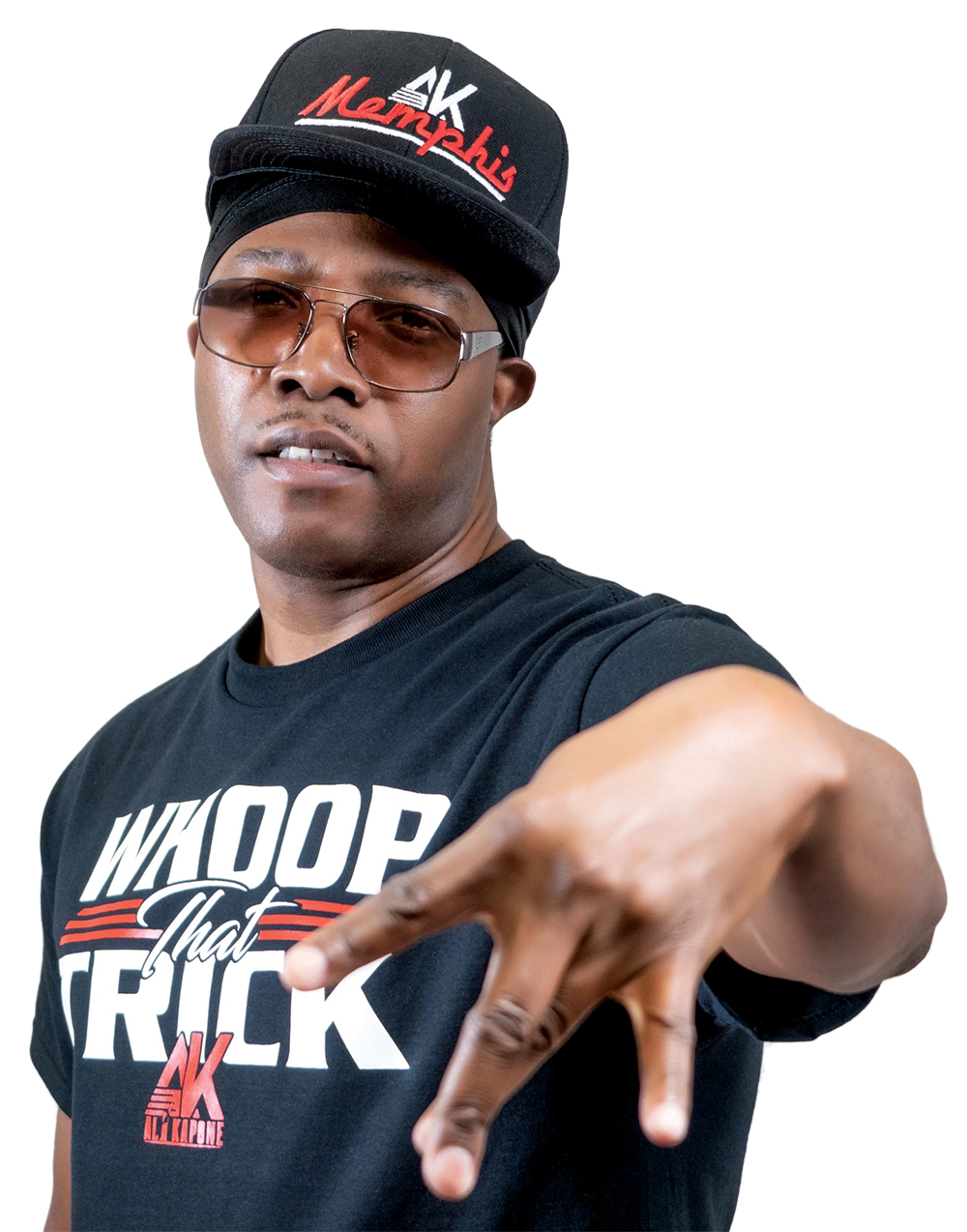
FRIDAY
Three 6 Mafia
Bud Light Stage, 10:35 p.m.
No group represents the staying power of Memphis hip-hop like Three 6 Mafia, who’ve parlayed their relatively obscure, ’90s cult status into global celebrity through the staying power of their game-changing beats and attitude. Now their horror-movie soundtrack to life on the Memphis streets, which won them an Oscar, has morphed into the crunk and trap genres. See where it all began.
Al Kapone
Bud Light Stage, 6:15 p.m.
Kapone came up alongside Three 6 Mafia back in the day, and also contributed to the award-winning Hustle & Flow soundtrack. His “Whoop That Trick” from the film lives on as an anthem for the Memphis Grizzlies. Lately, he’s become more eclectic but always grounded, telling the Memphis Flyer’s Michael Donahue: “At some point I’m still just a songwriter, a guy from the projects and the hood.”
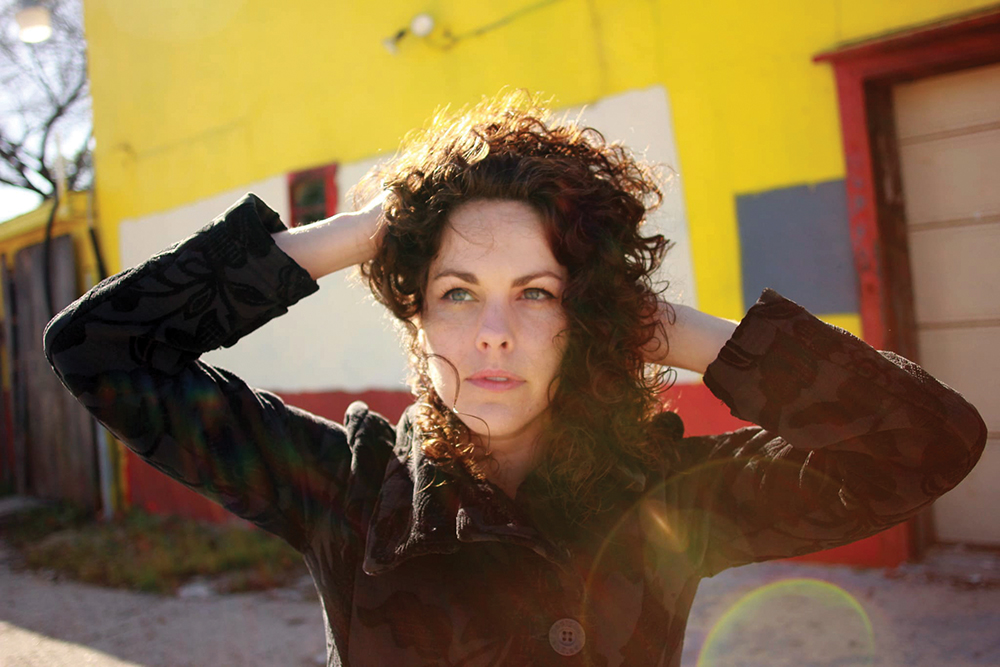
Amy LaVere
Zyn Stage, 5:45 p.m.
This singer, songwriter, and bassist extraordinaire is such a fixture on the local scene that it’s easy to forget that she’s a Louisiana native. It was in Memphis that she really found her voice, and she even lured her husband Will Sexton here from his native Texas. We dubbed LaVere’s most recent album, 2020’s Painting Blue, “dark and beautiful.”
Kenny Brown
Coca-Cola Blues Tent, 9:05 p.m.
Hailing from North Mississippi, Michael Donahue calls Brown a “Hill Country Hero.” Given the way the blues ebbs and flows, only to be reinvented by stalwart artists like Brown, that’s not an exaggeration. He learned well from the likes of R.L. Burnside and Junior Kimbrough. No wonder his latest album, with The Black Keys and Eric Deaton, snagged a 2022 Grammy nomination.
Earl the Pearl
Coca-Cola Blues Tent, 6 p.m.
Born in 1936, Earl Banks is a living link to the blues in its rawest, earliest expression. Having first played with Joe Hill Louis, he went on to define the Memphis blues style for decades and can still be seen on Beale Street nearly every week. From Jimmy Reed to Howlin’ Wolf and B.B. King, Earl the Pearl makes every blues his own, with a guitar tone like quicksilver.
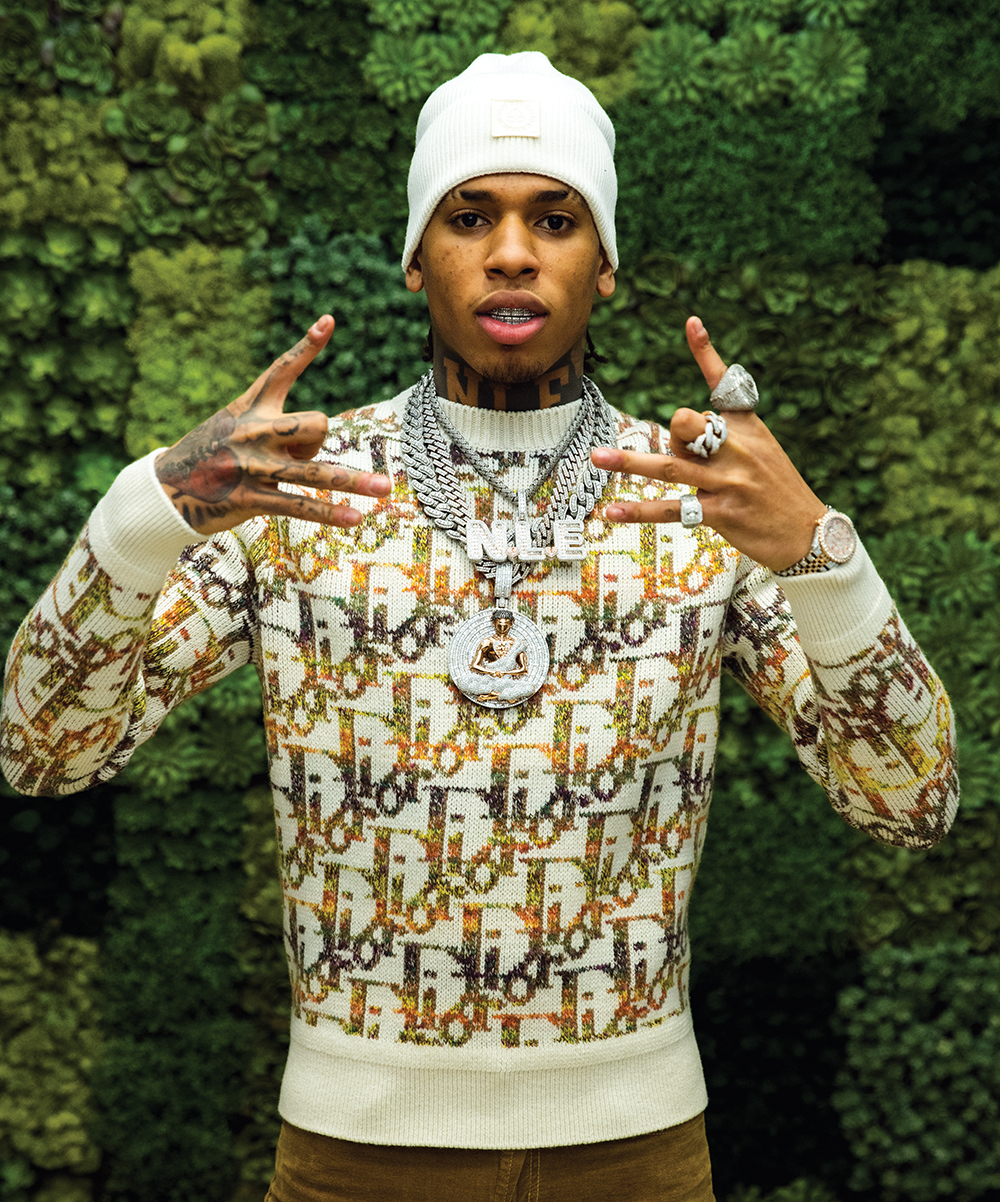
SATURDAY
NLE Choppa
Zyn Stage, 7:30 p.m.
With “one of the greatest flows in current hip-hop,” as M.T. Richards wrote in 2020, NLE Choppa brings a unique angle to trap music. This “creature of Memphis’ strobe-lit skating rinks” honors his Jamaican heritage by “sprinkling patois in rap’s everyday vocabulary.” He’s created a unique sound and credits his hometown: “So many good artists are in Memphis,” he says.
Project Pat
Zyn Stage, 6:15 p.m.
Few artists are as close to the Three 6 Mafia orbit as Project Pat, self-described brother of Juicy J, whose biggest hits were on the Hypnotize Minds label owned by J and DJ Paul. Yet Project Pat has crafted his own identity with Dirty South classics like “Chickenhead,” “Ballers,” “Don’t Save Her,” and the ever-relevant “Ghetty Green.”
Duke Deuce
Zyn Stage, 4:50 p.m.
With his hit single “Crunk Ain’t Dead,” Duke Deuce has let it be known where he’s coming from. Son of Duke Nitty, a producer for Gangsta Blac and Nasty Nardo, the rapper’s name-checked his hometown in debut tracks, “Memphis Massacre” and “Memphis Massacre 2.” Last year, his debut album Duke Nukem debuted at No. 3 on the Billboard Heatseekers Albums chart.
Lil Wyte
Zyn Stage, 3:25 p.m.
It’s no accident that Lil Wyte is a natural ally of rapper Frayser Boy. Growing up in Frayser helped Lil Wyte transcend any racial barriers, as he proved himself in the world of Three 6 Mafia enough to release his debut on the Hypnotize Minds label, with hits like “Oxy Cotton” and “My Smokin’ Song.”
White $osa
Zyn Stage, 3:25 p.m.
Kicking off the Zyn Stage string of Memphis rappers, White $osa is unique in that his name inspired his rapping, rather than vice versa. Originally gaining fame through an Instagram account that’s now up to 129,000 followers, it turned out he had a flair for flowing rhymes as well. Since turning to music, his collaboration with NLE Choppa has garnered 21 million streams on Spotify.
Blvck Hippie
Bud Light Stage, 2 p.m.
As Jesse Davis wrote in the Memphis Flyer, this group’s 2019 track “Hotel Lobby” is “one of the catchiest Memphis-made songs in recent memory.” With indie-pop songs marked by “excellent arrangements” and group founder Josh Shaw’s “open and honest lyrics,” and fresh off a series of concerts at South by Southwest, Treefort Music Fest, and Audiotree promoting their new LP, If You Feel Alone at Parties, Blvck Hippie is one gem to keep an eye on at this year’s festival.
Tora Tora
Terminix Stage, 2:15 p.m.
If you thought that Memphis was all about blues, soul, and hip-hop, think again. These metal masters have been honing a distinctly Mid-South variant of their chosen genre since the ’80s, when a trio of hits like “Walkin’ Shoes,” “Guilty,” and “Dancing with a Gypsy” (the latter featured in the film Bill & Ted’s Excellent Adventure) powered a career that includes 2019’s Bastards of Beale.
Don Bryant & the Bo-Keys
Coca-Cola Blues Tent, 9:25 p.m.
Don Bryant has lost none of the power of his voice since he began performing over half a century ago. Indeed, his delivery has matured as if aged in an oak barrel, and now that he has ace neo-soul group the Bo-Keys backing him up, we dubbed his latest LP, You Make Me Feel, an “instant classic” of pure, down-home soul.
Ghost Town Blues Band
Coca-Cola Blues Tent, 7:55 p.m.
This group is proof positive that the blues still offers plenty of room for innovation. Not your typical bar combo, Ghost Town Blues Band blends traditional blues with Stax-era soul and even includes novel instruments like cigar box guitars and electric push brooms in their arrangements. Expect the unexpected.
Barbara Blue
Coca-Cola Blues Tent, 2:10 p.m.
Blue is a queen of Beale Street, a regular performer at Silky O’Sullivan’s who has worked with some serious contenders in the past (including three albums with Taj Mahal’s Phantom Blues Band in the 1990s). Her latest album even features the legendary Bernard “Pretty” Purdie on drums. World-class blues, soul, and jazz live on with Barbara Blue.
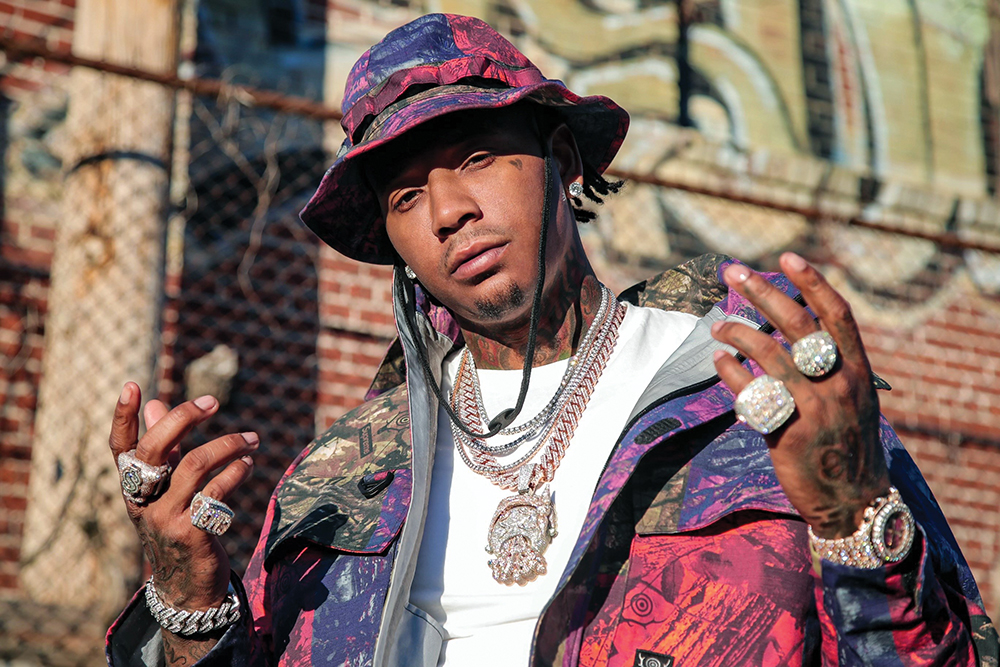
SUNDAY
Moneybagg Yo
Bud Light Stage, 7:40 p.m.
It was only five years ago that Zandria Robinson reported on Moneybagg Yo’s album release party for his debut, Federal 3X, and now he’s a leading star in the trap music universe. His 2020 album, A Gangsta’s Pain, debuted at No. 1 on the charts. Yet he continues to appreciate his hometown, gifting Covid-related supplies to local schools after that album conquered the charts.
Jucee Froot
Bud Light Stage, 2:10 p.m.
If Memphis hip-hop is dominated by male stars, Jucee Froot is bucking that trend with her meteoric climb to fame. Since 2020, when she released her debut Black Sheep on Atlantic, she’s had tracks featured in soundtracks for the film Birds of Prey and the series P-Valley and Insecure.

Cory Branan
Zyn Stage, 2 p.m.
Rolling Stone got it right when they dubbed this consummate singer/songwriter “a country boy with a punk-rock heart.” Since the late ’90s, when he found his voice in the Memphis indie scene, he’s been perfecting the combination of those elements in his music and lyrics. He’s also a phenomenal guitarist. Watch for a new album later this year.
Blind Mississippi Morris
Coca-Cola Blues Tent, 3:25 p.m.
Blind Mississippi Morris is Beale Street royalty, and no festival named for the famed blues district would be complete without his uniquely powerful harmonica playing and singing. The recipient of the Mississippi Music Foundation’s Lifetime Achievement Award and a two-time winner of the Premier Player Grammy Award for Harmonica Player of the Year, Morris combines the grit and grind of the blues like no other.
Melvia “Chick” Rodgers
Coca-Cola Blues Tent, 3:25 p.m.
A vocal powerhouse, Melvia “Chick” Rodgers-Williams grew up in the historic Black neighborhood of Orange Mound, singing in her father’s church. Being steeped in the passions of gospel music stuck with her, as she followed her musical star on USO tours and a successful career in Chicago. With BSMF, she’s bringing it all back home.
BSMF 2022: Liberty Park Logistics
The Beale Street Music Festival is such an institution in Memphis, and so closely associated with Tom Lee Park, that any change to the winning formula is hard to fathom. Yet fathom it we must, as the BSMF situates itself on new grounds this year so that work may continue apace on the riverfront space where it typically lives. And if Tom Lee Park, once given its remake, promises to be better than ever, the 2022 iteration of the festival will have a glory all its own, nestled in the shadow of the Liberty Bowl Memorial Stadium. To get a sense of what has changed and what has remained, Memphis Flyer asked BSMF’s Randy Blevins to give us the lay of the land.
Memphis Flyer: It must have caused quite a shake-up to relocate away from your usual home. How will the experience be different for festival-goers?
Randy Blevins: We’re going to be at the fairgrounds at Liberty Park just for this year while Tom Lee Park is under construction. As far as the festival is concerned, the layout is a different shape. Where everything at Tom Lee Park is kind of lined up north to south, the fairgrounds at Liberty Park are in a big rectangle. It’s still a big site. Two of the main stages will have the Liberty Bowl in the background, and the other main stage will have East Parkway in the background. There’ll be two main entrances on the north and on the south. And in the middle is Tiger Lane.
It actually surprises people who may have only driven on Tiger Lane or to the Coliseum. Once you’re there, you realize that’s a really big space. The fairgrounds had the Mid-South Fair for such a long time, and there’s plenty of room for the experience. So it’ll include all the things you’re used to seeing, just placed a little differently. All three stages will be triangulated with plenty of space between them. From the fountain at Tiger Lane, you’ll be able to see one stage to the south and another to the north. So it’ll create a really electric atmosphere.
How will parking be handled this year?
We’re trying the best we can to make things easy and nice for everybody. There is on-site parking, and that area is accustomed to holding big events. And there are all these other locations, like CBU and other places that turn their surface lots into parking. We’ve also arranged with MATA to have a free rapid shuttle coming from Downtown. Most of our fans are coming from 100, 200 miles away, spending on average two to three nights at a hotel in Memphis. And most of our hotels are Downtown. That’s why Tom Lee Park works so well. So this year we’ll have a rapid shuttle, which will pick up at two locations: B.B. King and Union, and on Second Street by the [Renasant] Convention Center. Ticket-holders will be able to hop on the rapid shuttle and get dropped off at two locations, then take the shuttle back Downtown to continue to hang out on Beale Street and enjoy all the nightlife down there. If you’ve ever been Downtown after the festival, it’s packed. So we want that to continue. And if people want to use that, it’s free, but they have to register online first. They just show their ticket and they can hop the shuttle and ride about every 10 minutes or so, depending on traffic.
We’re also coordinating to set up a couple hundred spaces at the University of Memphis, and you’ll be able to buy access to a parking spot next to the Holiday Inn there, and then ride a shuttle from the U of M to the site and back. That’s just for Memphians who might not want to go Downtown and don’t want to deal with congestion around Liberty Park. It might be a nice option if you’re coming in from Cordova or Germantown.
The festival’s been delayed for years because of the pandemic. What procedures are in place to address Covid?
We have a disclaimer on everything and we have a plan ready to go if anything happens, as we did last year when we had a half festival with the barbecue cooking contest at limited capacity. Whatever comes down from the Shelby County Health Department, we’ll comply and do what needs to be done. The world’s used to this now.
Have artists made different requests as far as vaccinations and the like?
There have been different requirements from artists, but that’s become less and less part of the conversation as the months and weeks have come along. Currently we’re not asking for proof of vaccination from the public. But currently, anything is possible. Some of the artists have different requirements for ground transportation that’s picking them up or in the backstage areas. They might request masks. The vendors and backstage crews will meet each specific artist’s requirements.
After the 2020 festival was canceled, did many ticket holders opt to just redeem their tickets when the festival resumed?
We have a decent number of deferrals. We did not get a lot of refund requests. Many folks just decided, “Whenever you come back, we’re in.” It shows the staying power of the story. It’s a great deal of trust, if you’ve paid hundreds of dollars for tickets, in some cases, and you’re flying blind because you don’t know who we’re going to book. So we felt pretty good that 90 percent of the people weren’t just saying, “Give me my money back.” It could have happened. We were prepared for whatever.
Has it been difficult to gear up for this after such a long hiatus?
Just a short time ago, we were at a skeleton staff of only five people and the future of everything was a giant question mark. A festival depends on bringing people together in big groups. We don’t receive money from the city or the state or anything to cover overhead. And we had a reserve saved up for a rainy day, but a rainy day is a bad year, not a year with literally nothing. Who would have ever predicted that, right? So it was really tough. To be in the situation we’re in now, back to doing a big, full-on festival, is really good. There were no guarantees just a short time ago, when everything was shut down and there were just five of us, basically, living month to month. We just started hiring people and getting back up to full staff this fall. And we’re glad to be back, and glad that we’re getting such a good reception to this.
Beale Street Music Festival Schedule 2022
Friday, April 29, 2022
Gates at 5 p.m.
Bud Light Stage
Three 6 Mafia 10:35-11:50 p.m.
DaBaby 9:15-10:05 p.m.
Waka Flocka Flame 7:45-8:45 p.m.
Al Kapone (Memphis) 6:15-7:15 p.m.
Zyn Stage
Sarah McLachlan 10:15-11:45 p.m.
Van Morrison 8:15-9:45 p.m.
Kurt Vile & The Violators 6:35-7:40 p.m.
Amy LaVere (Memphis) 5:45-6:20 p.m.
Terminix Stage
Sammy Hagar & The Circle 10:30-midnight
Dirty Honey 9-10 p.m.
Glorious Sons 7:30-8:30 p.m.
Black Pistol Fire 6-6:55 p.m.
Blues Tent
JJ Grey & Mofro 10:45-12:15 p.m.
Kenny Brown (Memphis) 9:05-10:15 p.m.
Janiva Magness 7:30-8:35 p.m.
Earl the Pearl (Memphis) 6-7 p.m.
Saturday, April 30, 2022
Gates at 1 p.m.
Bud Light Stage
Death Cab for Cutie 9:35-11:05 p.m.
Spoon 7:55-9:05 p.m.
Grouplove 6:20-7:25 p.m.
Toad the Wet Sprocket 4:45-5:50 p.m.
Soccer Mommy 3:15-4:15 p.m.
Blvck Hippie (Memphis) 2-2:50 p.m.
Zyn Stage
Megan Thee Stallion 10:45-11:35 p.m.
Sarkodie (Ghana) 9-10:15 p.m.
NLE Choppa (Memphis) 7:30-8:30 p.m.
Project Pat (Memphis) 6:15-7:05 p.m.
Duke Deuce (Memphis) 4:50-5:45 p.m.
Lil Wyte (Memphis) 3:25-4:25 p.m.
White $osa (Memphis) 2:15-3 p.m.
Terminix Stage
Smashing Pumpkins 10:15-11:45 p.m.
Stone Temple Pilots 8:30-9:45 p.m.
Chevelle 6:50-8 p.m.
Rival Sons 5:15-6:20 p.m.
Ayron Jones 3:45-4:45 p.m.
Tora Tora (Memphis) 2:15-3:15 p.m.
Blues Tent
Robert Randolph & the Family Band 11-12:15 p.m.
Don Bryant & the Bo-Keys (Memphis) 9:25-10:30 p.m.
Ghost Town Blues Band (Memphis) 7:55-9 p.m.
Hurricane Ruth 6:25-7:30 p.m.
Mitch Woods & His Rocket 88’s 5-6 p.m.
Brandon Santini 3:35-4:35 p.m.
Barbara Blue (Memphis) 2:10-3:10 p.m.
Sunday, May 1, 2022
Gates at 1 p.m.
Bud Light Stage
Lil Wayne 9-9:50 p.m.
MoneyBagg Yo (Memphis) 7:40-8:30 p.m.
Shaggy 6:10-7:10 p.m.
Stonebwoy (Ghana) 4:45-5:45 p.m.
Third World 3:20-4:20 p.m.
Jucee Froot (Memphis) 2:10-2:50 p.m.
Zyn Stage
Counting Crows 8:15-9:45 p.m.
Lindsey Buckingham 6:30-7:45 p.m.
Grace Potter 4:55-6 p.m.
Patty Griffin 3:20-4:25 p.m.
Cory Branan (Memphis) 2-2:50 p.m.
Terminix Stage
Weezer 8:40-10:10 p.m.
Modest Mouse 6:55-8:10 p.m.
Goose 5:05-6:25 p.m.
Indigo Girls 3:30-4:35 p.m.
Cory Henry 2-3 p.m.
Blues Tent
Elvin Bishop’s Big Fun Trio 9:25-10:40 p.m.
Trigger Hippy 7:50-8:55 p.m.
Sue Foley 6:20-7:25 p.m.
The Reverend Peyton’s Big Damn Band 4:50-5:55 p.m.
Blind Mississippi Morris (Memphis) 3:25-4:25 p.m.
Melvia “Chick” Rogers (Memphis) 2-3 p.m.
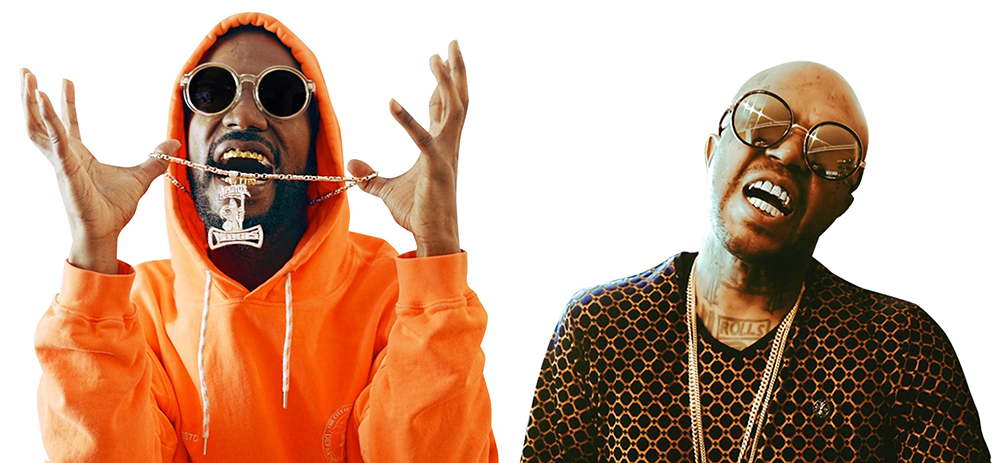
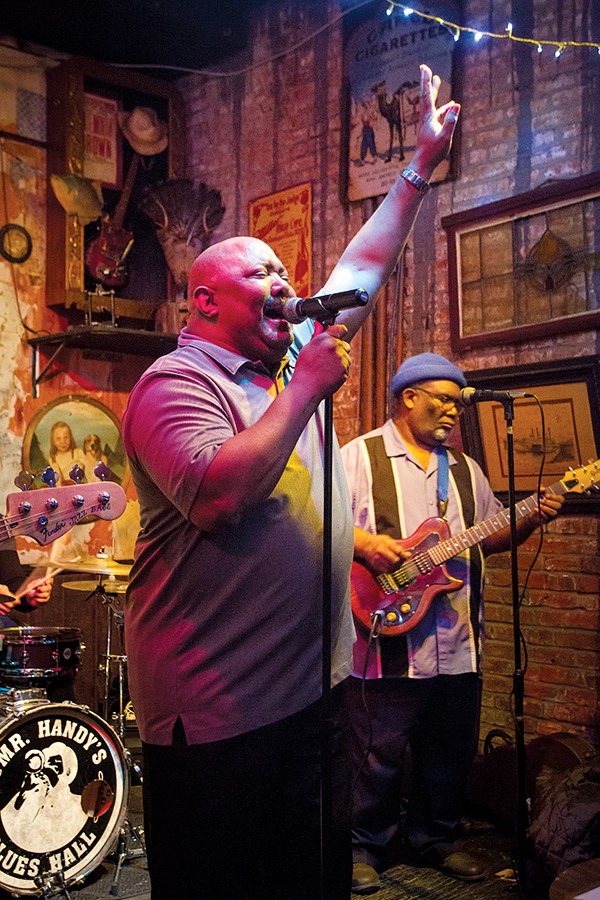 Don Perry
Don Perry 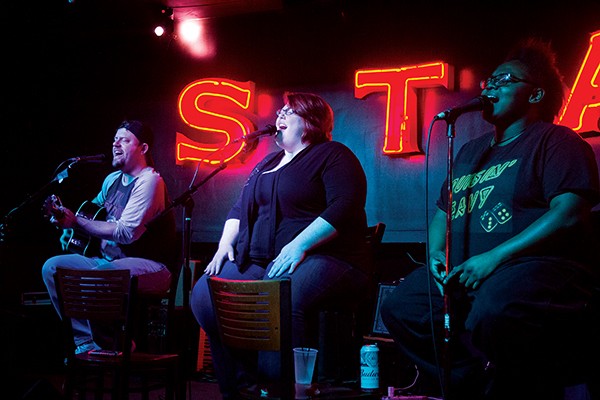 Don Perry
Don Perry 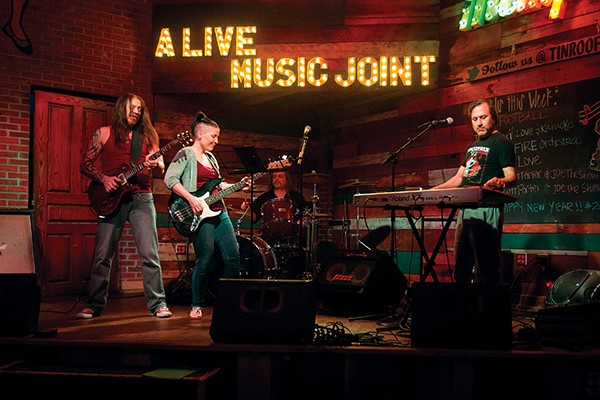 Don Perry
Don Perry 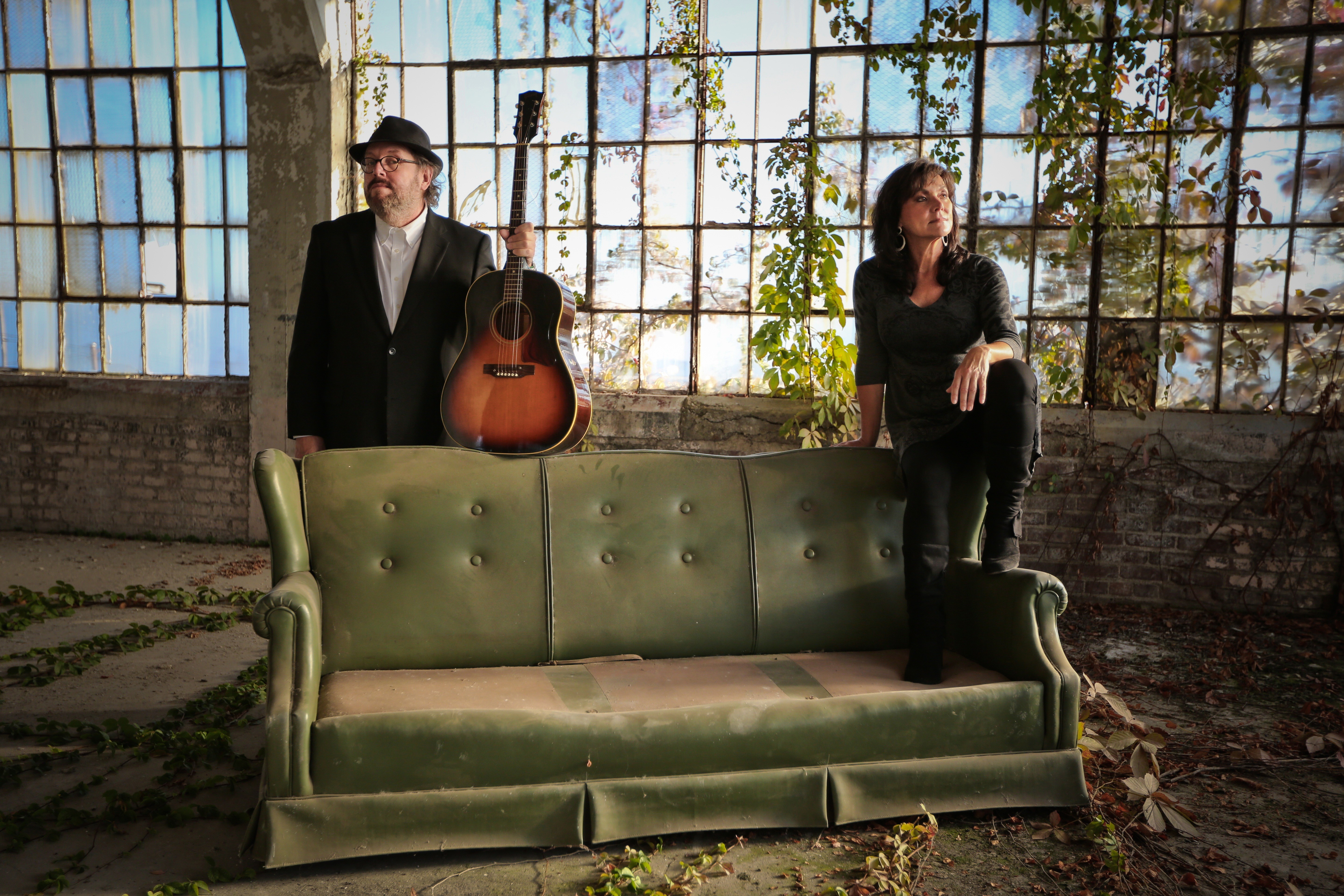 Loveland Duren play Lafayette’s Music Room on Saturday.
Loveland Duren play Lafayette’s Music Room on Saturday. 
